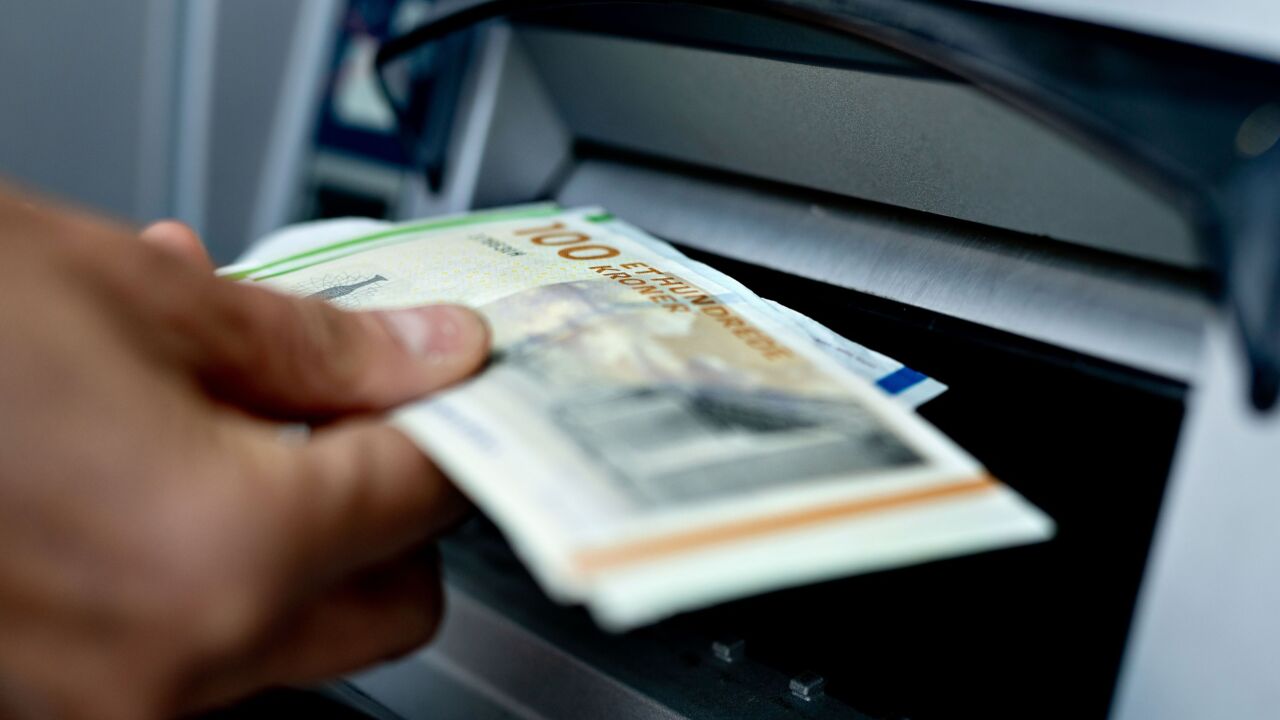-
The state is requiring merchants to accept cash denominations of $20 and under and prohibits them from charging extra to accept cash. The law, which goes into effect in March, comes as merchants are responding to the Trump administration's abrupt cancellation of penny production.
December 5 -
Research from Cornell University suggests that people assign different levels of social status to others depending on how they choose to pay for goods and services.
July 7
-
The Trump administration plans to stop minting the one-cent coins early next year. Here are the potential consequences that banks and credit unions should prepare for.
June 11 -
The pending law, which has passed the Assembly and Senate, prohibits food and retail stores from refusing to accept cash payments. Cashless establishments have been prohibited in New York City since 2020.
June 10 -
Myriad payment innovations are cutting into old-school cash payments, changing how funds are accessed, spent and received for purposes ranging from in-store payments to accessing disaster recovery funds. Will these changes bring new communities into banking, or will it leave them behind?
December 17 -
The Consumer Financial Protection Bureau said charges for cash-back services are contributing to the lack of access to finance in underserved areas.
August 27 -
The ability to make cash transactions is vital to some Americans, and when technology fails us, it can be a lifeline for all Americans. We need to preserve it.
August 16
-
U.K. banks are testing machines that can accept deposits from multiple machines.
June 21 -
In the U.S., the COVID-19 pandemic and other factors caused a sharp reduction in cash use. But with paper bills still accounting for nearly a fifth of all payments, the option is still far too entrenched to risk extinction.
June 7 -
This week in global news, Mastercard teams with SimpliFi in the Middle East, Venezuela and Russia collaborate on payments, Alipay backs Asian Games and more.
June 21 -
Bank robberies are becoming a thing of the past in cashless Denmark as the Nordic country recorded its first year of zero holdups in 2022.
January 3 -
Treasury Secretary Janet Yellen hailed the work done by women in her department as she unveiled the first U.S. banknotes bearing the signature of a female secretary.
December 8 -
An end-of-year push to attach a marijuana banking bill to a must-pass defense measure is facing stiff resistance from Senate Republicans and complicating the delicate lame-duck endgame for Democratic leaders soon to lose control of the House.
December 7 -
Banks are starting to have a tougher time obtaining funds in the financial system as the Federal Reserve shrinks its balance sheet and hikes interest rates, leaving analysts searching for any signs that the strains are approaching the magnitude of past credit crunches.
December 6 -
Marijuana shops across the U.S. are rushing to find alternative ways for customers to pay after networks that supported a popular workaround to the banking system began to shut down last week.
December 5 -
Treasury Secretary Janet Yellen, whose signature will soon appear on U.S. currency, joked with the talk show host Stephen Colbert that she worked hard to avoid the ridicule faced by some of her recent predecessors over their sloppy handwriting.
December 1 -
Thieves have increasingly used solid explosive to blow open cash machines rather than gas.
November 8 -
Citigroup plans to offer automatic-sweep products seven days a week as banks respond to clients' demands for higher interest rates on deposits and faster access to their cash.
October 5 -
After being hard-hit financially by the pandemic and the surging inflation that followed, the generation entering adulthood is meshing their love of late-‘90s nostalgia — think cargo pants, bucket hats and disposable cameras — with a dose of old-fashioned frugality.
June 29 -
Cash is being used in fewer transactions than ever before, and the pandemic has only accelerated the trend. Yet the U.S. is far behind some European and Asian countries in embracing digital payments and significant hurdles remain to its becoming completely cashless.
January 27

















